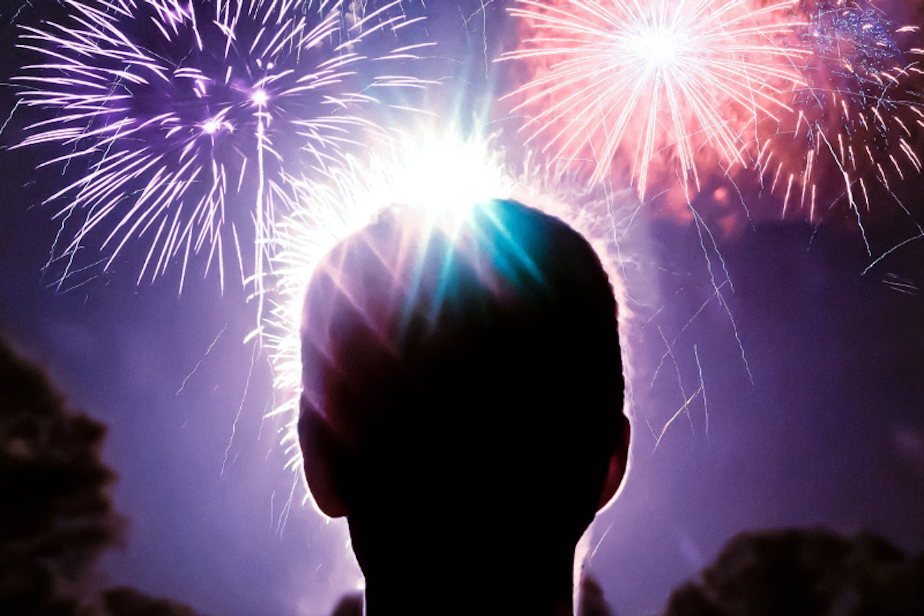There's a link between eye injuries and fireworks, UW study finds

Researchers at the University of Washington say the odds of suffering a fireworks-related eye injury are higher if you live where the explosives are legal. The study also found children, especially boys, make up a disproportionate percentage of the victims.
To many, New Years Eve means fireworks. For some doctors in Seattle, the holiday also means a busy few days of treating eye injuries.
“A lot of surgery that happened in that week and try to rescue a lot of eyes,” said Dr. Shu Feng, an assistant professor of ophthalmology at UW.
Feng has worked as the on-call specialist at Harborview Medical Center for many years. In that time she and her colleagues noticed a growing trend of patients coming in from around the state with injuries from fireworks.
“The thought came up of: ‘Well, are these people coming from places where these fireworks are banned? Or are they coming from places where they're still legal?’” Feng told KUOW in an interview.
So Feng and UW began tracking fireworks injuries over an eight-year period, focused on the two weeks surrounding the Fourth of July holiday.
They found people who live in areas where fireworks are legal, like in Snohomish County on the day of July 4, are two times more likely to be injured by fireworks than in places where they’re not legal, like in Seattle.
“To find a difference between the odds of injury if you're from one area where there's legal fireworks versus banned was surprising,” Feng said.
One finding from the study that might be less surprising is that fireworks injuries tend to happen to people who interact with them the most: nearly all of the injuries (90%) happened to men and boys.
Feng says these injuries happened at a private event, not at a public display show.
“It's from people mostly setting them off at home,” she said. “It's from misfires, it's from homemade fireworks, it’s from those large fireworks that kind of shoot towards people."
The odds of a fireworks injury are higher among children under the age of 18, who made up a third of all injuries in the study.
"I played with fireworks when I was a kid,” Feng said. "Now, I will not let my kids near fireworks because I've just seen so much from it."
Instead, she says she will take her kids to see public fireworks shows on the holidays. Feng strongly encourages people to enjoy the explosives from a safe distance and to not build their own fireworks at home.
Seattle’s New Years Eve fireworks celebration includes drones this year and starts just before midnight at the Space Needle.




